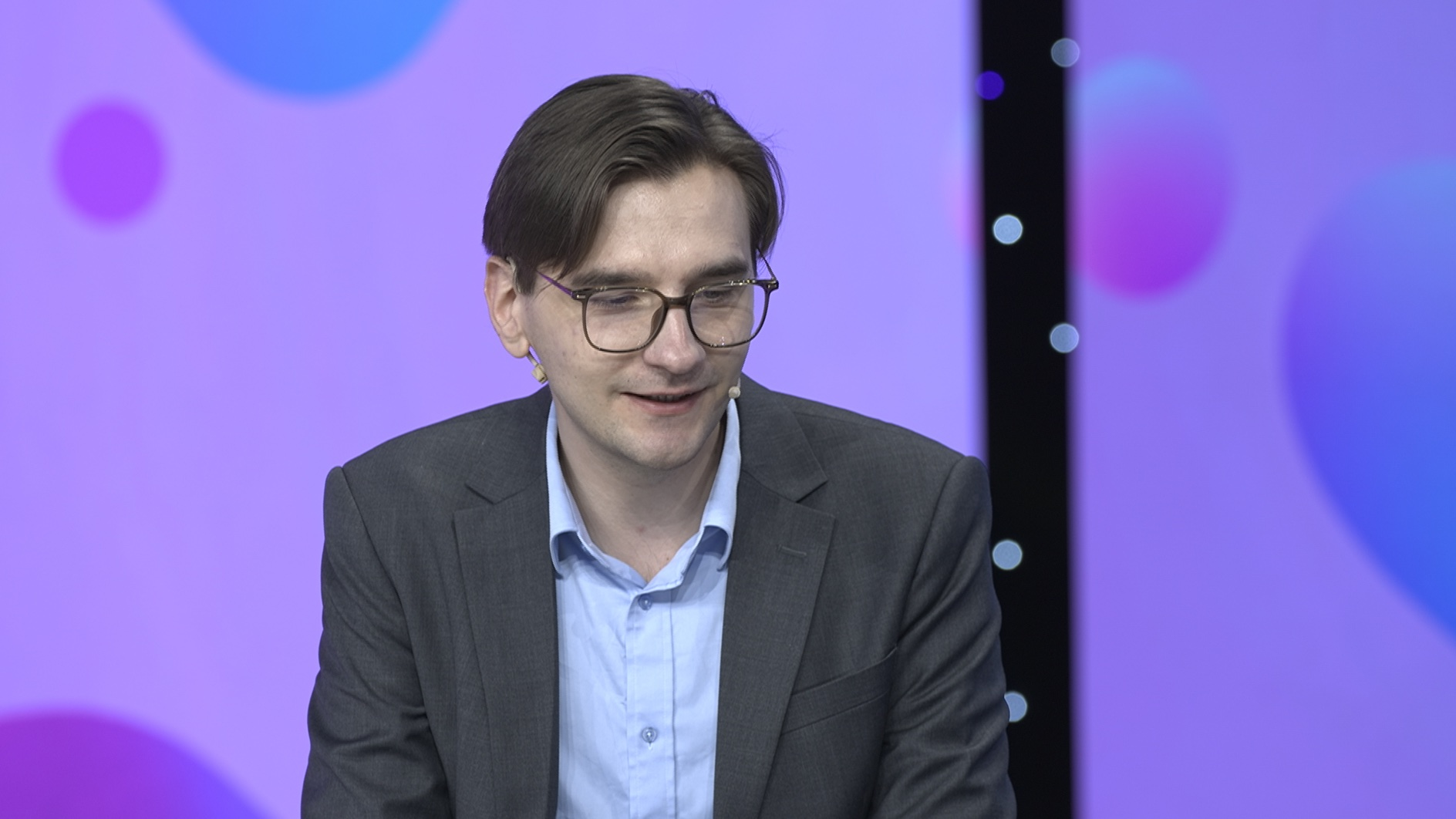Enoch Wong
As China stands on the precipice of the 2024 Two Sessions, the world watches with bated breath, keen to understand the next phase in the nation's ambitious journey towards high-quality development. Among the global audience, the voices of European and American youths offer a unique, often underappreciated perspective on this transformative era. Through their insights, we can glimpse the multifaceted nature of China's progress. Their stories not only demystify the intricacies of Chinese modernization but also challenge prevailing stereotypes, fostering a deeper cross-cultural understanding.
Technological innovation and healthcare: A leap forward

Cvitkovic Josip (Joseph), Croatian resident doctor, Capital Medical University.
Joseph, a Croatian medical graduate and resident doctor in China, stands at the forefront of witnessing China's integration of technological innovations within the healthcare sector. His observations reveal a nation ardently pursuing advancements in medical technology, from the widespread implementation of 5G to the pioneering roles of robots in diagnostics and surgery. This commitment to innovation is not merely about technological supremacy but reflects a deeper philosophical approach to healthcare – one that values accessibility, efficiency and the enhancement of quality of life.
Joseph's narrative underscores a significant theme in China's development agenda: the harmonious fusion of technology and human welfare. "In comparison to Europe back home, medical tech in China is developing really, really fast. And for us doctors, they always advise us to learn something new; today is about 5G, tomorrow is about bioinformatics … all these integrations can really help to boost the development and quality of medical care," he notes, highlighting the proactive steps China is taking to prepare its medical professionals for a future where technology and healthcare converge seamlessly. This approach not only positions China as a global leader in medical technology but also exemplifies the nation's broader commitment to high-quality development, enriching the cultural and health lives of its people.
Global South engagement and multipolarity: Fostering a balanced world

Zuzanna Zak, Polish scholar in international relations and politics, Tsinghua University.
Zuzanna, a Polish student of international relations and politics, provides a fresh lens on China's diplomatic endeavors, particularly its role in the Global South. Marking the 60th anniversary of the founding of the Group of 77 (G77+China), her reflections celebrate China's consistent outreach and support for the development and revitalization efforts of developing nations. Zuzanna sees China as a "peacemaker" and an "alternative voice" on the global stage, offering the Global South options beyond the conventional Western-centric model.
This engagement underscores China's dedication to a multipolar world order and its belief in the principles of fairness, justice and shared destiny. Zuzanna's perspective illustrates how China's foreign policy initiatives, characterized by South-South cooperation, contribute not only to the nation's high-quality development but also to the broader goal of fostering a more equitable and peaceful global partnership. Through its actions, China exemplifies a commitment to mutual respect, dialogue and the pursuit of common prosperity, challenging the traditional dynamics of international relations.
Political understanding and people's democracy: Unity in progress

Nick, U.S. doctoral student in electronic engineering, Tsinghua University.
Nick's foray into the realm of Chinese politics, as a U.S. doctoral student in electronic engineering, brings to light the concept of whole-process people's democracy. Although outside his academic discipline and profession, his daily observations, having lived in China for a few years, challenge the Western narrative of antagonism between the Chinese government and its people, revealing instead a profound sense of unity and shared purpose. "In China, (when) you come here, you very quickly realize that everyone's on the same page. General speaking, there's a strong sense of unity, and we're here on the same mission to improve the country for everyone," Nick observes, debunking misconceptions and highlighting the alignment towards national progress.
This unity is a cornerstone of China's approach to high-quality development. It signifies a collective commitment to a strategic societal design that underpins China's ambitious development goals. By fostering an environment where government and citizens work hand in hand, China is able to navigate the complexities of modernization with remarkable cohesion and purpose. This model of governance, often misunderstood, offers a compelling alternative to the polarized and contentious political landscapes observed in many Western electoral democracies.
Beyond the GDP: Bridging cultures, shaping futures
The stories of the above European and American youths collectively offer a nuanced understanding of China's high-quality development. Through their eyes, we witness the integration of technology in healthcare, the strategic engagement with the Global South and the unique political harmony that fuels China's modernization efforts. These stories not only challenge stereotypes but also encourage a deeper cross-cultural dialogue, essential for the global community as it navigates the challenges and opportunities of the 21st century.
As China advances towards its goals, the insights of these young individuals remind us of the importance of keeping an open mind and striving for a more inclusive and balanced understanding of development. In doing so, we not only enrich our perspectives but also contribute to a world where dialogue, respect and mutual prosperity reign supreme.
-
Xi, Biden agree to advance cooperation
Xi, Biden agree to advance cooperation
-
More flights take off under bilateral pact
More flights take off under bilateral pact
-
Enduring bond fosters Sino-US relationship
Enduring bond fosters Sino-US relationship
-
Forum extols benefits of Xizang's democratic reform
Forum extols benefits of Xizang's democratic reform